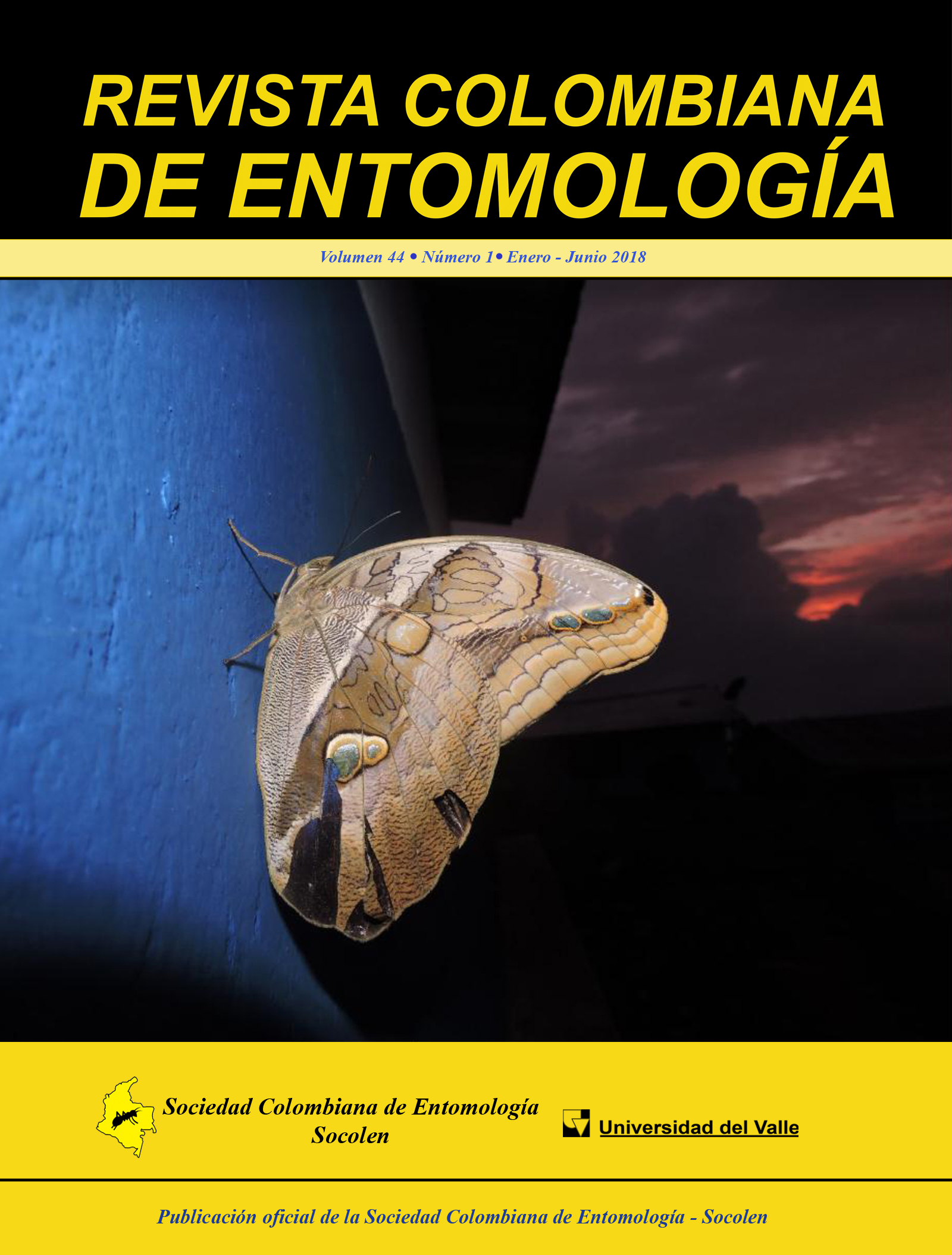Volatile compounds of Persian and Mexican lime associated with HLB (Huanglongbing) symptoms
Contenido principal del artículo
The bacterium Candidatus Liberibacter asiaticus is the pathogen that causes the disease known as Huanglongbing (HLB) in citrus. During the course of the disease, the bacterium affects citrus plant phloem tissues, but their leaves remain asymptomatic for HLB for months to years after initial infection. This limits the early detection and control of the bacterium in infected trees. Therefore, in order to design a diagnostic strategy for HLB, the aim of this study was to quantify the abundance and concentration of the volatile compounds released from young shoots of the Persian lemon (Citrus latifolia Tanaka) and the Mexican lemon [Citrus aurantifolia (Christm.) Swingle] with and without HLB symptoms. The volatiles emitted by young shoots were captured by Solid Phase Microextraction (SPME) and analyzed in a gas chromatograph coupled to a mass selective detector (CG / MS). The results clearly indicate that young shoots with and without HLB symptoms released different abundances and concentrations of volatile compounds. The compounds: D-limonene, β-ocimene, and caryophyllene were collected at higher concentrations in the young shoots of both lemon species with HLB symptoms. This result shows the feasibility of designing a strategy for early detection of the disease in different species of lemon through recognition of patterns and concentrations of volatile compounds released from infected trees.
- Diaphorina citri
- new shoots
- D-Limonene
- β-Ocimene
- caryophyllene
Descargas

Esta obra está bajo una licencia internacional Creative Commons Atribución-NoComercial-CompartirIgual 4.0.
Los autores conservan los derechos patrimoniales sobre su trabajo y son responsables de las ideas emitidas en ellos. Una vez un manuscrito sea aprobado para publicar se solicita a los autores una licencia de publicación por el término de la protección legal, para todos los territorios que permite el uso, difusión y divulgación de los mismos.





